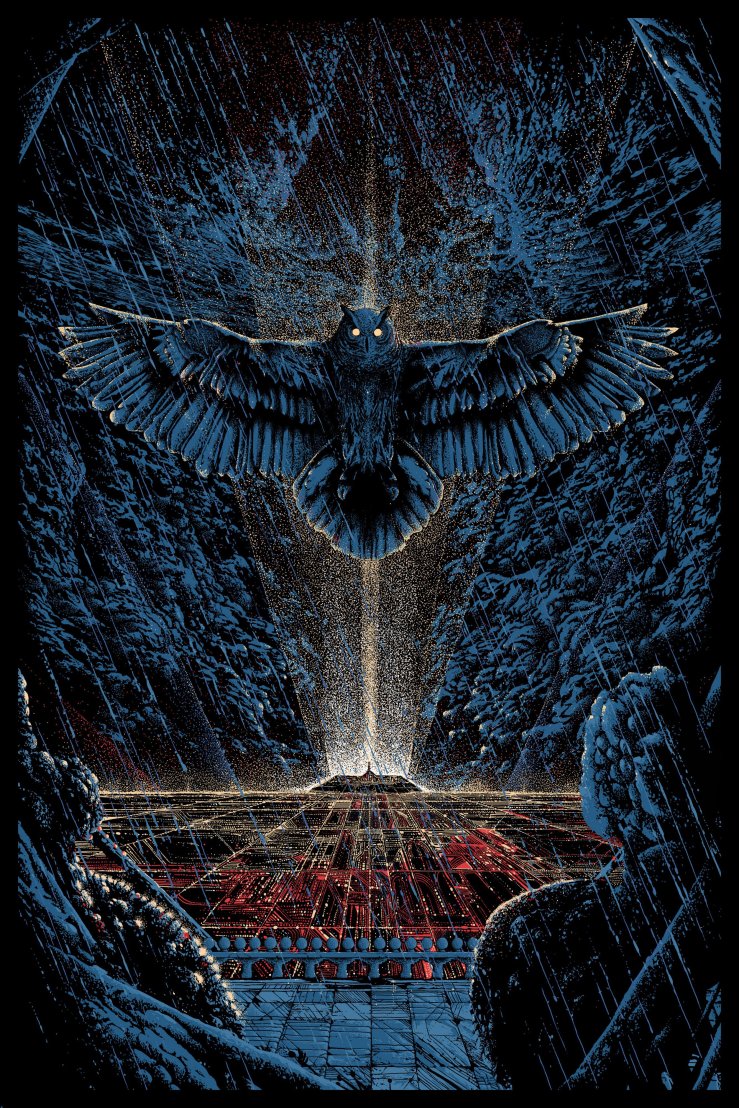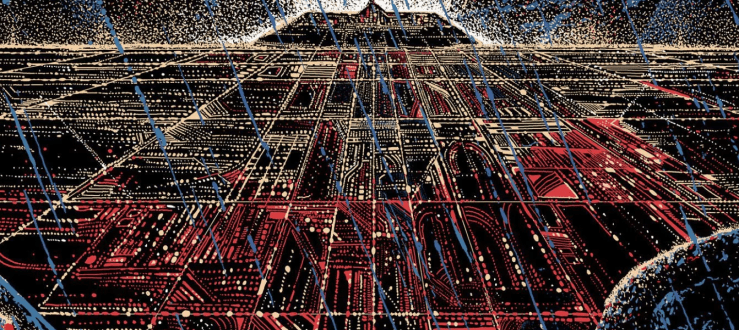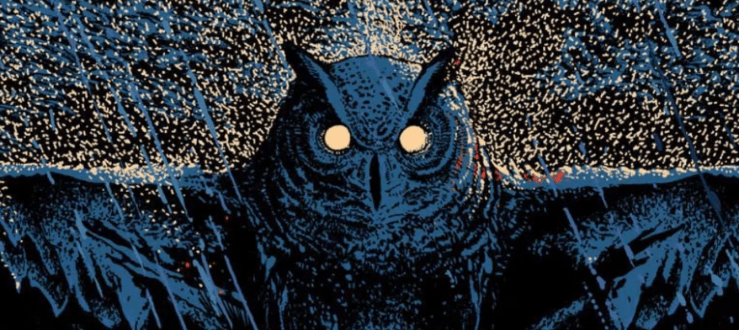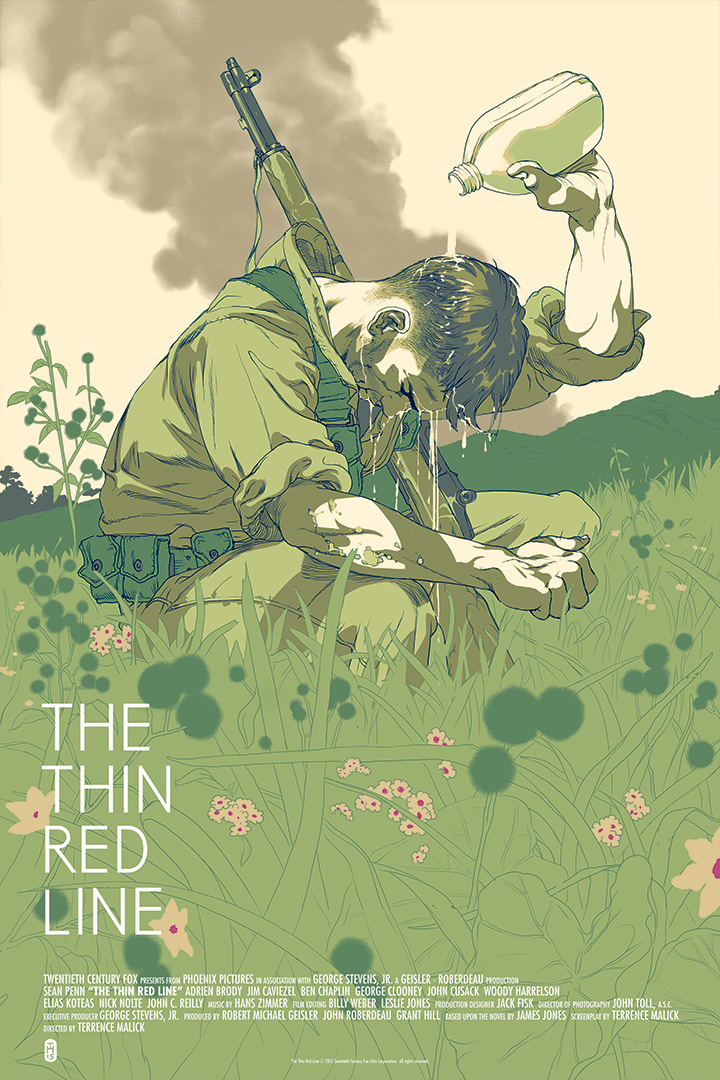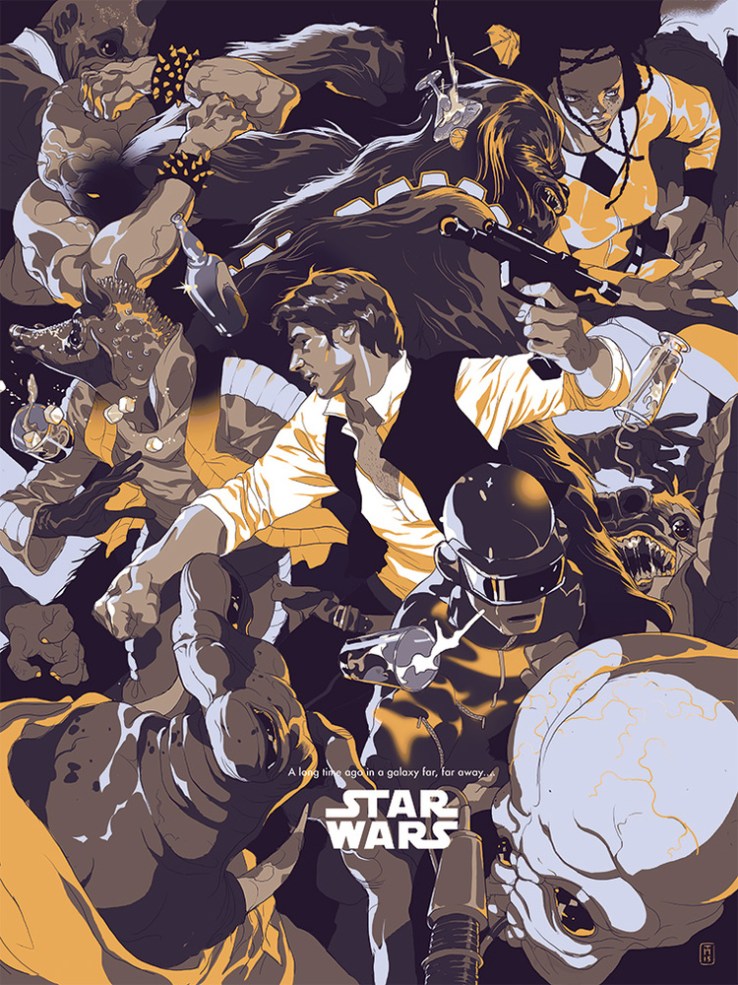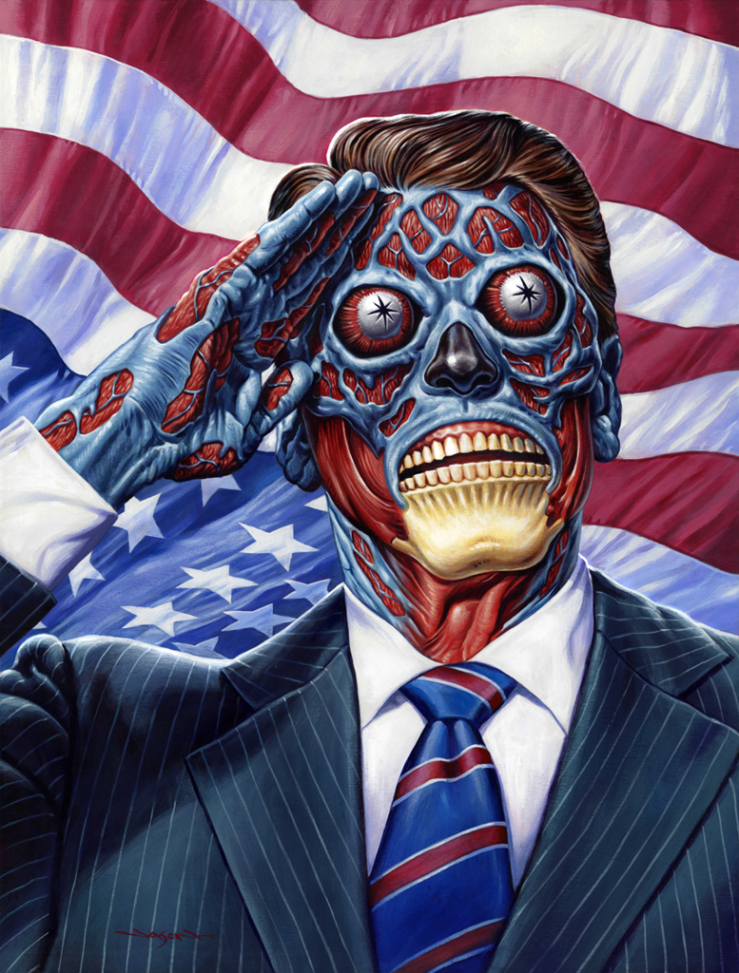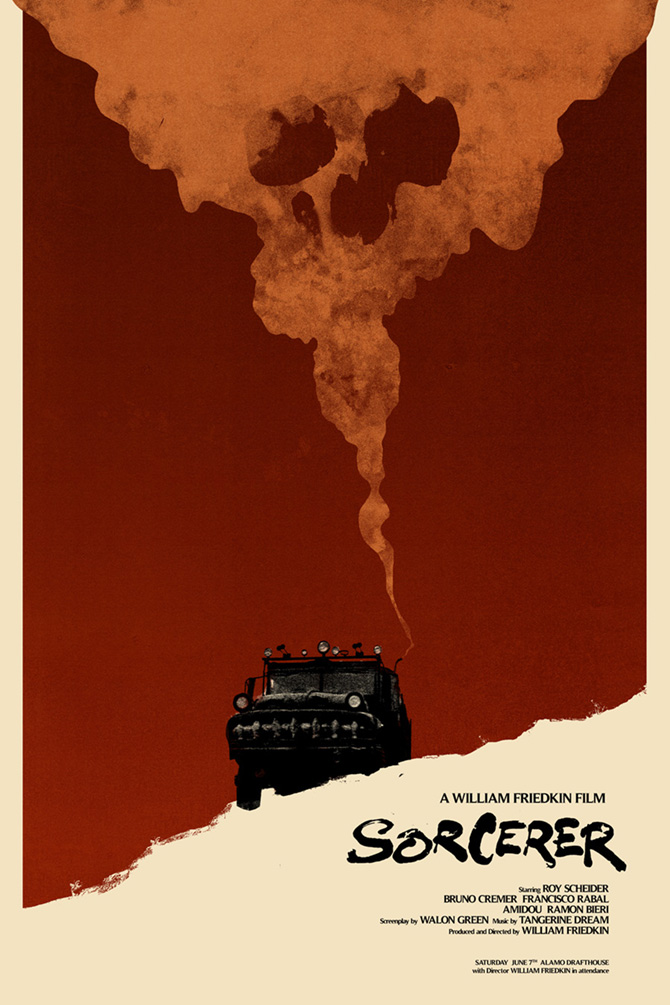
I need to write a proper riff on William Friedkin’s astounding 1977 film Sorcerer—I’m pretty sure I didn’t see a better film this summer—nor have I seen anything that zapped me with that How the hell haven’t I seen this yet? feeling since Michael Mann’s Thief. But as the summer ebbs and a new year of a full teaching load approaches, I’m not sure if I’ve got a spare three hours to watch Sorcerer a third time any time soon (the third viewing was perfect, by the bye). It’s great though. It’s about four dudes, exiles, trying to move nitroglycerin in two old trucks across a mountain in an unnamed South American country.
I had scratched out some notes on the first viewing though, which I won’t bother to cobble together here in anything other than a silly list, which I hope to mine later in Something Bigger on Sorcerer:
- Metaphors of postglobal cooperation in the cause of self-interest.
- Multilingual, but postlingual: Film as language. Sorcerer as its own language.
- Post-WWII; somehow hasn’t absorbed the Vietnam War.
- Like Herzog, here is a depiction of nature that conveys the sublime while stripping from it the romance, leaving only the horror and awe.
- Comments on its own engineering, its own technological processes (like Herzog’s Fitzcarraldo).
- But also, its focus on engineering points backwards (The Bridge on the River Kwai) and forwards (uh, the Fast/Furious franchise? —but not fast here; no: slow).
- (Clearly the double feature of Fitzcarraldo).
- Postglobalism — terror, crime, religion, economics, class, “high” art, — all the shit that’s dealt with in the first 30 min — is subsumed into nature vs techne — a kind of nihilsm against nature pointing at the current century.
- IT’S ALL ABOUT ENGINEERING!
- Unself-concious postmodernism, before postmodernism is properly “postmodernism”: That Friedkin is perhaps working in Modernist idioms (all the noir touches, the irony, the hallucinations, the cuts, etc.), but produces something we might describe as “postmodern.”
- That end — tragic, ironic, pathetic, bathetic—and a loop! (sort of)—Friedkin’s film ironizes the Romantic touches, the Bogart shadows.
- (Watch it again).
